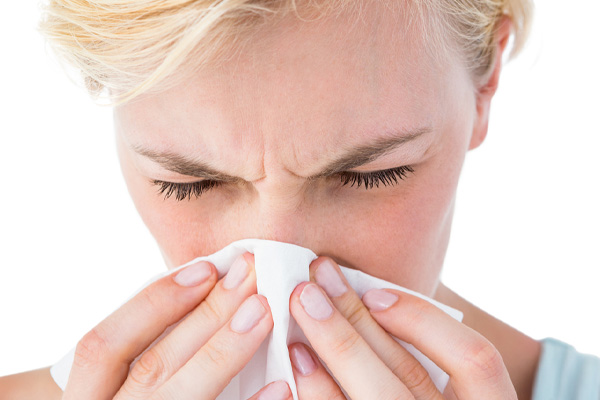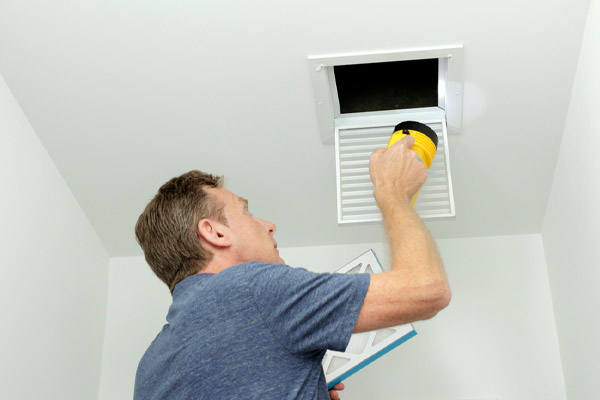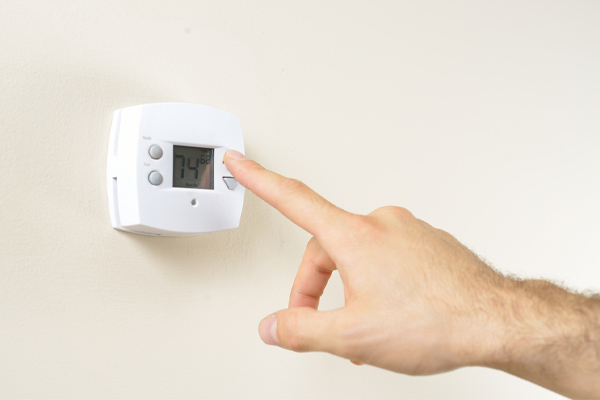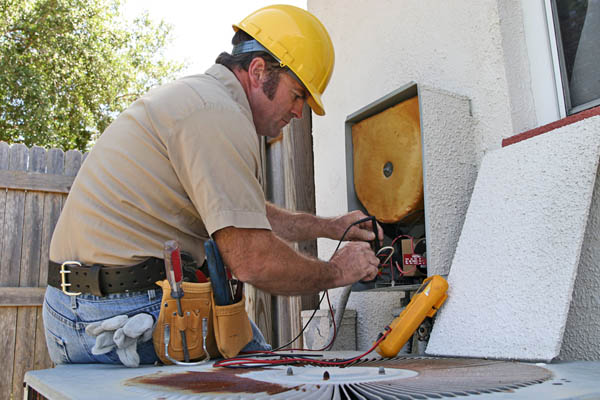HVAC Allergies: How To Get Rid Of Pollen From Your Home This Spring

Millions of Americans are affected by allergies annually, with varying degrees of severity depending on their sensitivity and environmental factors. If you are one of these individuals, adjusting your home can provide greater comfort and relief. Don’t continue to suffer needlessly. By changing habits and utilizing technology, such as your HVAC system, you can tackle the problem head-on. Being proactive can help you navigate allergy season with minimal complications. However, failing to take action can lead to your HVAC system exacerbating allergy symptoms (known as HVAC allergies). To learn how to combat seasonal allergies with the aid of your HVAC system, read on.
How to Help Reduce Your Seasonal Allergies
Contents [hide]
The central theme of this article is how you can transform your HVAC system into a valuable asset for promoting good health.
Replace Your HVAC Filters Regularly

The atmosphere contains impurities that can cause respiratory problems and allergies. These tiny air particles are often invisible to the naked eye but occasionally visible as light reflecting off them through windows. HVAC systems already have filters in place to capture dust and debris from the air that circulates through them. These filters can reduce allergy symptoms while safeguarding the equipment. Manufacturers suggest changing HVAC filters regularly to avoid obstructing airflow and reducing system efficiency, which could lead to a shortened service life. Make sure you replace your air filters every one to three months, depending on the level of dust accumulation.
Upgrade to HEPA HVAC Filters
Most HVAC equipment is equipped with basic air filters with a wide mesh and can only capture larger particles, like pet dander. As a result, they are incapable of filtering small allergens like pollen. This is because manufacturers prioritize safeguarding the system from airborne particles that could damage it rather than those that could cause health issues for users.
To filter out small allergens, you will need HEPA filters. These filters are called high-efficiency particulate air filters and have a tighter mesh that can trap allergens, preventing harm to the user. However, the airflow in the HVAC system will be reduced, requiring additional modifications for optimal performance. Consult an HVAC contractor to identify the best options for your system.
Keep Surfaces Clean
When allergens infiltrate the interior of a home, they will eventually settle on surfaces like the floor, desk, and bed rather than remaining airborne indefinitely. To mitigate this, it is recommended to clean these surfaces, particularly in your bedroom, regularly. Using a feather duster or broom will only agitate the particles and circulate them back into the air, so it’s best to employ a powerful vacuum cleaner that can suction up all the dust, dirt, and pollen. If a vacuum cleaner is unavailable, a clean rag dampened with water can be used to wipe surfaces and trap dirt effectively. It is advisable to launder bedding weekly or as frequently as possible.
Use the HVAC System Regularly

Stagnant air can be hazardous to our health. If the air inside our homes does not circulate, pollutants can accumulate and reach unhealthy levels.
To enhance ventilation, it is recommended to periodically run the air conditioning system, even if we do not need it. This will cause the air to circulate as fresh outdoor air replaces stale indoor air. Run the system for at least 20 minutes each day.
Use a UV Light for Sanitation
Ultraviolet light is recognized for its disinfectant properties. When we hang clothes out in the sun to dry, it’s not just to expedite water evaporation through the heat. It is done to eliminate bacteria using UV light and give the clothes a fresh scent. UV light can eradicate pathogens at the molecular level, making it a popular choice for water treatment in concentrated form. Moreover, smaller UV devices can be fitted into HVAC systems to exterminate allergens that may grow within them. This will help prevent the air conditioning system from circulating contaminated air throughout the home and significantly enhance indoor air quality (IAQ).
Seal Wall and Window Gaps
Simply closing all the doors and windows may not prevent pollen from infiltrating your home. Certain houses may have fissures or openings along the edges of doors and windows. Inspect your home to determine if these narrow gaps are present, allowing unfiltered air to enter. If you find any, consider using caulk, weather stripping, or spray foam to obstruct the flow. Ensure that all windows are shut during the peak pollen hours in the early mornings.
Use A Whole House Humidifier
To gain a more precise understanding of your particular environmental conditions, take measurements of your indoor humidity. Ideally, the humidity level should hover around 40%. When the air is excessively dry, allergens can persist in the atmosphere for extended periods and may induce physical reactions in sensitive individuals. On the other hand, excessive humidity can cause mold and mildew to thrive, resulting in more significant issues. Consider using a whole-house humidifier or dehumidifier as needed to reestablish equilibrium.
Get Annual HVAC Cleaning & Maintenance

Dealing with allergies on your own can be challenging, as they can be a significant problem. If you experience severe allergic reactions, it is best to seek advice from a doctor. If you want to enhance the indoor air quality of your home, consult a reliable HVAC contractor. Having your equipment serviced and cleaned yearly is crucial to improve the system’s effectiveness and dependability, making it easier to breathe.
Conclusion
Springtime can trigger severe allergy flare-ups due to the prevalence of pollen and other allergens. To stay safe indoors, keep your windows closed, maintain a clean environment, and use your HVAC system to filter the air. It is also essential to contact HVAC technicians for regular maintenance work, HEPA filter replacement, and UV light installation to enhance indoor air quality. These measures will help in ensuring your comfort and well-being.
Call Miller Oil Company For All Of Your HVAC Requirements

At Miller Oil Company, we pride ourselves on delivering exceptional heating and cooling services throughout Hartford County and Tolland County, Connecticut. Our team of certified and highly-trained technicians is highly skilled and experienced in providing top-notch HVAC tune-ups, repairs, installations, and replacements. You can trust us to service your HVAC system with the utmost care and expertise.
We understand that cost is an essential factor in heating and cooling services, which is why we offer the most competitive rates in the area. Our maintenance services are designed to enhance comfort, increase energy efficiency, and lower heating and cooling expenses. Whether you require a repair or replacement, we can recommend the best system for your home that fits your budget. We stand behind all of our work with a satisfaction guarantee.
To schedule an appointment, call Miller Oil Company today. We also offer free, in-home estimates to help you make informed decisions about your heating and cooling needs.
Click here to contact us today or give us a call at (860) 745-0326 if you have any questions. Click the link to view our service area.